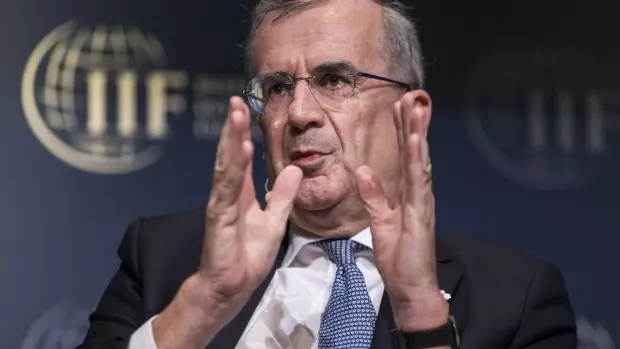Brussels October 12 2022: European Central Bank officials began discussions last week on how to shrink their €5.1 trillion ($4.9 trillion) portfolio as they look to widen the scope of their monetary tightening in due course.
“The Governing Council discussed the merits of its instruments, including interest-rate increases and downward balance sheet adjustments,” Luxembourg central-bank governor Gaston Reinesch said in a blog post Wednesday on what happened at a meeting on Oct. 5-6. “The pace and schedule of the balance sheet reduction, which will be data-dependent, will be determined in due course.”
Officials have signaled that no such move toward so-called quantitative tightening would take place until rates become be neither restrictive nor accommodative, a stance reiterated late Tuesday by French policy maker Francois Villeroy de Galhau. While hikes are likely both this month and December, views differ on how much borrowing costs need to rise to reach that neutral level.
The discussion under way is a fraught topic, as showcased by the UK’s financial-market ructions of recent weeks after the Bank of England’s plans to shrink its own balance sheet collided with the government’s ambitions for unfunded tax cuts. With Italy’s mammoth debt in the focus of investors, any decision to reduce the ECB’s hoard would involve offloading that country’s securities too.
“Bond markets have become much, much more sensitive to debt sustainability issues,” said Dutch central bank chief Klaas Knot, who suggested that that the ECB will aim to avoid unsettling investors. “A process like QT — it should be predictable, it should be gradual, it should be even a little bit boring.”
He told Bloomberg Television that officials are “making it up as we go,” though looking to the experience of the US Federal Reserve as an example.
“Janet Yellen once quipped it’s like watching paint dry, and that’s a little bit I think how you want to shape such a program,” he said.
The Dutchman differentiated the ECB’s position with that of the BOE, which had bought up many more long-dated bonds rather than the broad range of maturities purchases in the euro zone.
“They actively have to sell,” he said. “We in the euro area, like in the US, we have bonds over the full maturity, and we think we can do QT by just rolling off existing bonds by less than full reinvestment, which is naturally a smoother process.”
ECB President Christine Lagarde, speaking elsewhere in Washington, signaled that talks on the matter will last for a while.
“The question arises obviously as to how this which has now been stopped in terms of net asset purchases should be reversed: with which horizon, at which pace,” she said. “This is a discussion which we have started and that will be continued.”










